Questionhi shawna,
i have found a new rat food can i give this to my rats?
i am giving complete details of the food.
in 100g it has:-
folic acid-370 mcg
vitamin c-111 mg
vitamin b6-3.7 mg
vitamin a-741 mcg
selenium-37 mcg
copper-0.65 mg
vitamin e- 5 mg
zink -4.2mg
vitamin b2 -3 mg
vitamin b12 - 1.9 mcg
iron - 25.9 mg
iodine- 139 mcg
vitamin b1 -1.3 mg
niacin - 16.7 mg
vitamin d -4.6 mcg
calcium -741 mg
potassium - 490 mg
phosphorus - 280 mg
energy - 379 k cal
protein - 11 g
carbohydrate - 79.2 g
fat 2 g
sodium -400 mcg
chloride -565 mg
thanks in advance
AnswerDear Debajyoti-
Thank you so much for your question. I will do my best to answer your question. Keep in mind that there are several factors that determine the nutrient requirements for each individual rat, such as age. A key factor missing in the information you provided would be the age and stage of life of the rat(s) you would be feeding this diet.Pregnant, lactating, and young rats require more protein and fat that a typical full grown rat. Also, knowing the ingredients in this food would be helpful, as you would want to look for a food that uses a high quality protein source and does not contain a lot of dried corn or alfalfa.
Based on the information you have provided, the nutrient information is for 100g of food. An individual rat will typically eat anywhere from 10-20g of food daily, the average being about 15g. So the nutritonal information you have provided would need to be divided into a more appropriate "serving size".
If you could tell me a little more about your rat(s)such as their age/sex, and the name of this food, I would be able to better assist you in determining whether or not this would be a good choice of food for your rat(s).
For a full grown rat maintenance diet, you would want to keep the protein and fat low. Ideally, you would want to keep the protein no greater than 14% and the fat no greater than 5%. A high quality protein is recommended. Too much protein is reported to cause coat issues and too much fat could lead to obesity which in the long run could shorten your rat's life span. Essential fatty acids are also very important in the rats' diet. Males rats are especially prone to health issues when there is a deficiency of EFA (essential fatty acids) in the diet. Flaxseed is a good source of EFA either in the form of ground (flaxseed meal)or oil.
Because so many factors play into the nutrient requirements for each individual rat, many studies do not give the exact amount of each nutrient you have listed. Things like the type of cage can affect the nutritional requirements of a rat (rats in a galvanized cage require less zinc than a rat housed in a glass or plastic cage), whether or not a rat has has surgery or is under a great deal of stress (higher Vitamin A concentrates are needed for conditions of stress or in times of surgical recovery), even genetics. More exact estimates have been given for growing rats under 4 months and for reproducing females (pregnant or lactating).
I was able to find this micronutrient requirement list online:
Vitamin A 0.6mg
Vitamin D 1000IU
Vitamin e 35mg
Pantothenic Acid 8mg
Riboflavin 0.8mg
Thiamin 4mg
B6 7mg
B12 50mcg
Thanks again for your question. I apologize if I was not able to give you a more clear-cut answer but based on the subject matter and the info I was provided, it is difficult to provide a more precise reply. I do hope that the information I have provided will help you make a more educated decision on whether or not this particular food would an appropriate diet for your pet rat(s).

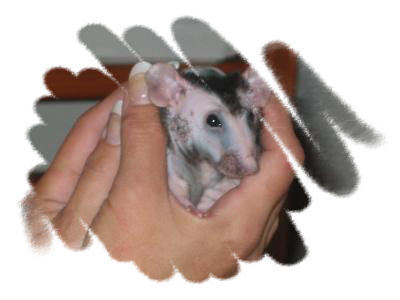 Time to put the rat down?
QuestionQUESTION: Hello Sandra,
I am the one with the r
Time to put the rat down?
QuestionQUESTION: Hello Sandra,
I am the one with the r
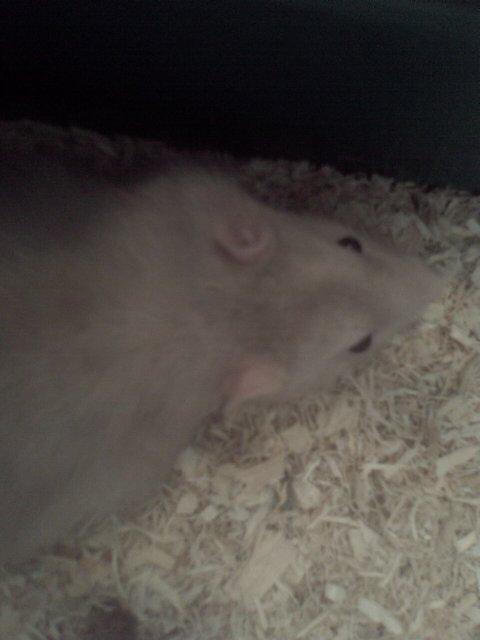 Tumor on my male rattie
QuestionQUESTION: Hi! I recently acquired a male rat fr
Tumor on my male rattie
QuestionQUESTION: Hi! I recently acquired a male rat fr
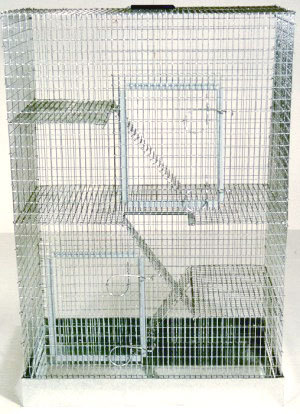 Is this cage big enough for two male rats?
QuestionQUESTION: I saw this cage on petsmart.com and w
Is this cage big enough for two male rats?
QuestionQUESTION: I saw this cage on petsmart.com and w
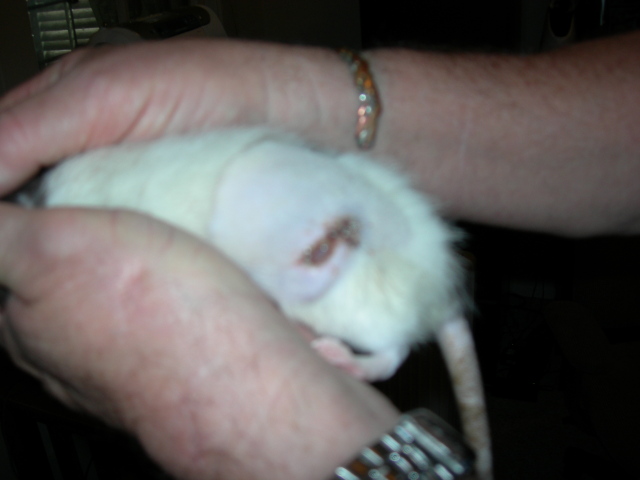 problems following surgery- keeps removing stiches
QuestionQUESTION: My little friend, Patches had surgery
problems following surgery- keeps removing stiches
QuestionQUESTION: My little friend, Patches had surgery
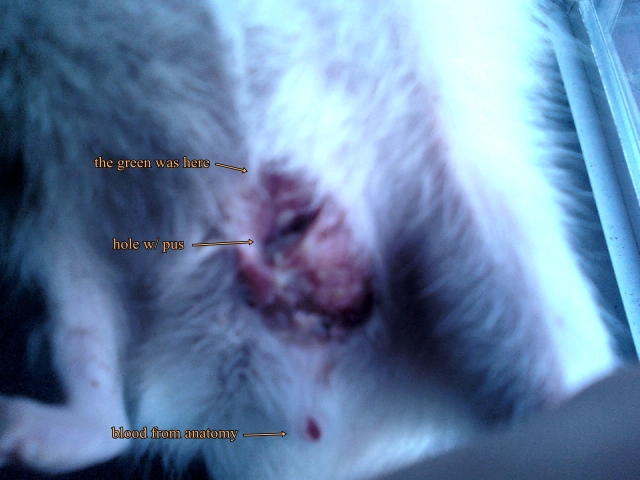 abcess
QuestionQUESTION: My rat, Poppy, broke out with an absc
abcess
QuestionQUESTION: My rat, Poppy, broke out with an absc